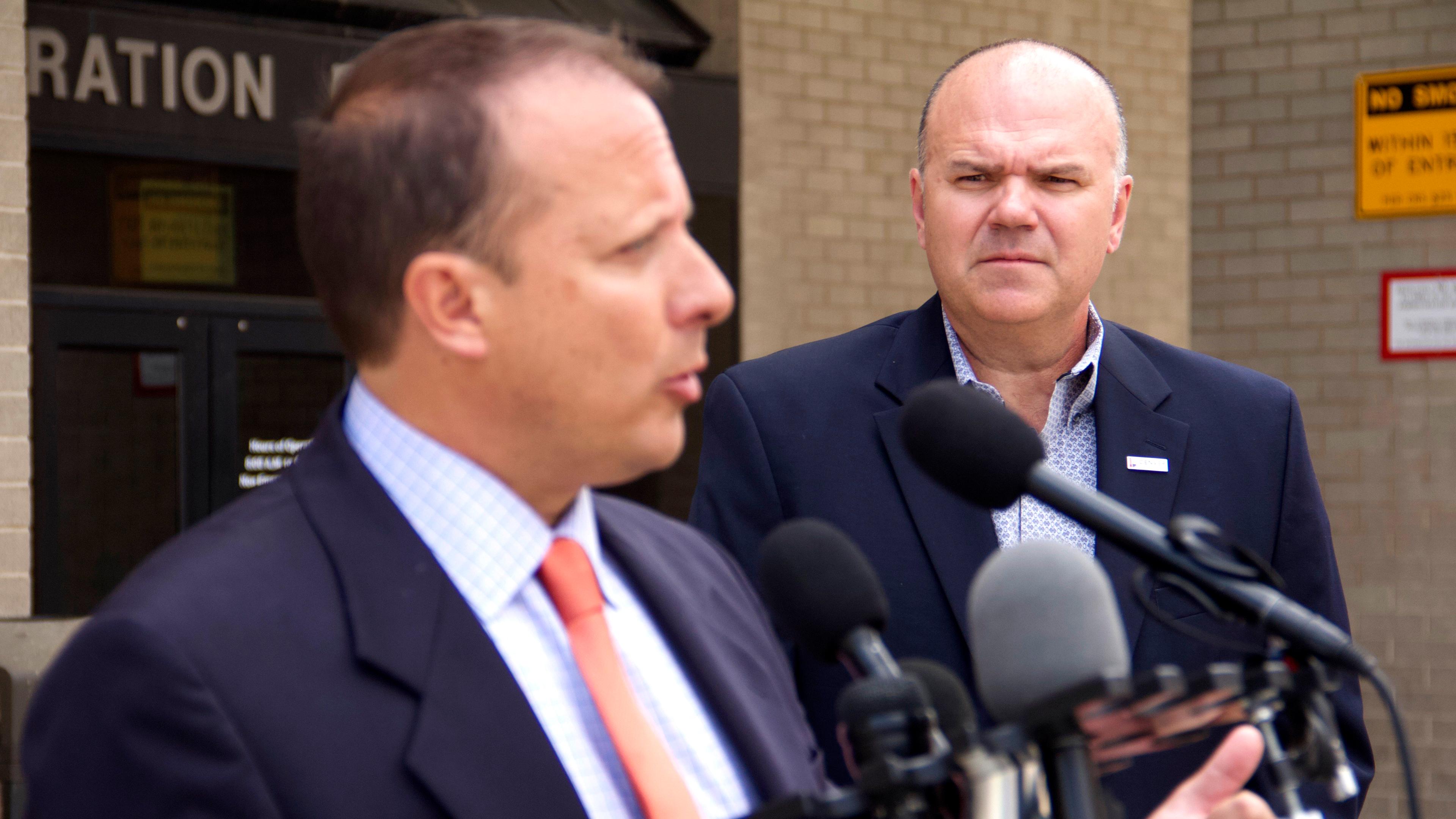The Denver City Council will reconsider its partnership with two halfway house operators after the Department of Public Safety asked elected officials to let the companies stay on board a little longer.
In a surprise vote earlier this month, council members voted to kill the contracts with CoreCivic and GEO Group because of the corporations' links to immigration prisons. The city had paid them to usher people out of prison and back into society, including nearly 500 clients staying in halfway houses, which provide shelter and services to prevent recidivism.
Community Corrections Director Greg Mauro wants to give former inmates a smoother transition, which he says is in jeopardy since the contracts were killed.
City Councilman Paul Kashmann has requested to expedite two new contracts, worth about $8 million total, at the request of Mauro. Mauro aims to transition the 492 current halfway house clients and attend to the 283 that have been approved for placement, according to a release from the public safety department. Kashmann's colleagues must sign on before considering the contracts.
GEO's contract would be reinstalled and expire at the end of the year. CoreCivic's would retroactively run from July 1 to June 20, 2020. Mauro said it was "difficult" to transition away from two providers with six facilities in such a short time. GEO Group has two facilities with 157 beds, so Mauro said the transition can be shorter. CoreCivic operates four facilities with 360 beds, hence the longer timeframe.
Mauro called the timeline "aggressive" but said they've heard from the City Council and will "follow their direction and wishes on this topic." The entire process could mean evaluating and potentially creating "a new vision" moving forward for community corrections.

"The first thing we want to do is stabilize things," Mauro said. "We have victims, we have families, we have residents who are uncertain about the future of this program. That's the first thing we need to stabilize."
Yesterday, Mayor Michael Hancock visited several inmates inside CoreCivic's Fox Street halfway house. He told media members that the men who lived there would be incarcerated if not for the re-entry service provided by CoreCivic's contract. Hancock has "never had a conversation about pulling out of these contractors," he told Denverite, and that he's always been supportive of the GEO and CoreCivic's partnerships.
Both private companies are shrouded in controversy.
CoreCivic is facing a lawsuit after a migrant child died in custody, while GEO has faced criticism and massive protests over treatment of inmates in its immigration facility in Aurora. These issues were discussed during the Aug. 5 council meeting, led by Councilwoman Candi CdeBaca, who wanted the city to divest from the corporations.
The council voted 8 to4 in favor of canceling the contracts.
"We have known for many years that this system is in need of a significant transformation, and we had our city show up unprepared," CdeBaca said earlier this month. "I fully expect the city to adapt and course-correct."
The public safety department will also form a 13-member advisory committee, led by Mauro and other members selected with input from City Council, to address other community concerns. The members would be chosen based on community correction expertise. Mauro hopes they will meet soon, in early September.
Public Safety Director Troy Riggs said the vote earlier this month means "500 human beings" could go back to jail if there is no plan in place. He also expressed support for Mauro, whom Riggs said has received public criticism despite "dedicating his life" for more than 20 years to community corrections. He said it was going to be difficult to immediately change a 30-year-old program.
If the new contracts aren't considered, Riggs said they will start the process of returning people to jail, because they don't have enough capacity without CoreCivic and GEO in the mix. He was optimistic a resolution could be reached.
"I'm fairly confident that we'll be able to move forward and start getting some relief to those individuals who's lives are in the balance right now," Riggs said. "But as far as moving forward, long term, I'm not confident that we'll be able to provide services to 748 people a year from now as we currently do today."













